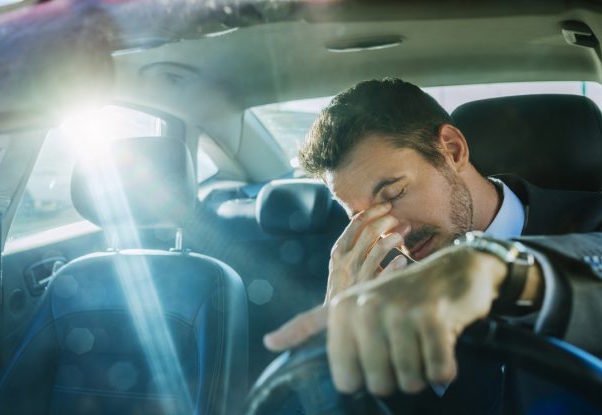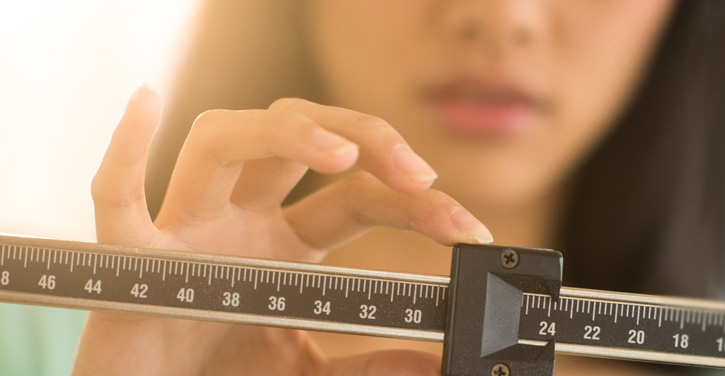Have you been feeling a little bit run down as of late? Are you beginning to notice that you’re getting sick more often than usual? Trouble staying awake? These are just a few of the ways that a lack of sleep can negatively impact your everyday life.
From time to time, we all deal with situations in life that may temporarily alter our sleep schedule. Having to wake up extra early to catch a flight or staying out late at night having an enjoyable time with friends are just a couple of examples.
However, as these instances are somewhat rare occurrences, they usually don’t impact our sleep schedule too drastically. It’s rather easy to get back on track fairly quickly following events like this.
But what if you aren’t getting a restful night's slumber regularly? If you have insomnia or any other type of sleep disorder, some seriously negative consequences can quickly begin to pile up.
In this article, we’ll cover 10 of the most common ways that a lack of sleep negatively affects you. Some of the things featured on this list can be life-threatening, so it’s vital that you do whatever you can to get your sleep in order.
So, How Does Lack Of Sleep Affect You?
1. Difficulty staying awake throughout the day
If you aren’t getting a quality amount of sleep every night, over time, you will end up finding it harder and harder to remain awake throughout the day. This can eventually lead to complete exhaustion.
It’s all too common for many individuals who are severely sleep deprived to begin nodding off at various times during the day. This can further lead to microsleep instances taking place.
A microsleep is a brief period of sleep or drowsiness that can last anywhere from less than a second on up to 30 seconds in some cases. Microsleep is caused by sudden shifts between a state of being awake and then sleeping.
The longer that you remain sleep deprived, the higher the risk of experiencing symptoms such as fatigue, difficulty staying awake, and potentially drifting off due to microsleeps.
Microsleeps can be particularly dangerous, especially if you are in the middle of a task that requires your complete attention. Which leads us straight into our next point.
2. You are more prone to accidents
If you’re suffering from insomnia and sleep deprivation, you are at a hugely increased risk of being involved in some form of accident.
If an individual were to suddenly lose consciousness for around 30 seconds, as described above with microsleeps, while operating heavy machinery or driving a vehicle, the results could be incredibly disastrous.
Many large-scale studies have been conducted that have found that a definite relationship exists between a lack of sleep and your risk of being in an accident.

Workers who are feeling the effects of sleep deprivation are 70 per cent more likely to be involved in a crash compared to non-sleep deprived workers.
To give you an idea of just how seriously a lack of sleep can contribute to accidents, look no further than the Chernobyl nuclear accident. This famous disaster has been linked to human error caused by excessively tired workers.
3. Decreased cognitive functioning
A chronic lack of sleep can affect your cognitive processes in many different ways. It can impair both your long- and short-term memory, as well as harming your ability to focus, solve problems, and make decisions.
When you are in a deep sleep, this strengthens the connections between your brain cells and your brain is given a chance to “recharge” to face the next day fresh.
On the other hand, if you are regularly not giving your brain a chance to rest properly, you will gradually begin to notice a sharp decline in your cognitive function. You will notice yourself becoming more forgetful while finding it harder to maintain good judgment.
4. Impaired motor skills
Not only does a lack of sleep affect your cognitive functioning and mental prowess, but it can also impact you physically by impairing your motor skills. It can significantly delay your reaction times, which when combined with the risk of microsleeps, makes driving a motor vehicle a hazardous endeavour.
In addition to this, a lack of sleep can affect your motor skills in such a way that you become more clumsy, finding it more difficult to maintain proper balance. It could even cause you to feel dizzy and experience vertigo.
And if you’re a fan of regular exercise, sleep deprivation can indeed impact your ability to get a solid workout in as well. Not only does it lower your performance standards, but it also reduces your pain threshold, meaning you most likely won’t be able to work out as intensely as you would like.
5. Increased risk of health issues
Believe it or not, sleep deprivation can increase your risk of coming down with many dangerous health conditions. A lack of sleep has been linked with several chronic health issues, including higher blood pressure, heart disease, and stroke.
Studies done at the Harvard Medical School have even shown that for anyone suffering from hypertension, just one single night of poor sleep can significantly elevate their blood pressure throughout the following day.
Not only does a lack of sleep contribute to an increased risk of cardiovascular disease, but it may also increase your risk of type 2 diabetes as well. Sleep deprivation can influence how your body processes glucose in the bloodstream, which is used by your cells to provide you with energy.
Not only does insomnia increase your risk of these serious chronic diseases, but it also makes it far more likely that you’ll become ill with the cold or flu as a lack of sleep can negatively affect your immune system functioning as well.
If your immune system is compromised, it will have a much tougher time fighting off harmful bacteria and viruses attacking your body.
6. Increased mortality rates
Beyond drastically increase your risk of chronic disease, an ongoing lack of sleep can also significantly increase your risk of death. Sleep deprivation (along with excessive amounts of sleep) has been shown to double your risk of death.
Studies performed on sleep deprivation throughout many years have shown that individuals who cut their sleep time down from about seven hours to five hours faced a 1.7 fold increased risk of death due to all causes, in addition to twice the risk of death due to cardiovascular disease.
As increased mortality rates were also evident with excessive amounts of sleep, this study helps to reinforce the point that the ideal amount of sleep time to aim for is between seven to eight hours.
7. Increased occurrence of anxiety, depression, and other mood disorders
Sleep deprivation and anxiety can contribute to an incredibly vicious cycle that is extremely hard to break.
When an individual is dealing with an anxiety disorder, it can be much more difficult for them to get a proper night of sleep. And in turn, a lack of sleep only compounds the anxiety problem, making it even worse.
Not only do sleep disorders interfere with your physical and mental functioning, but they also can have a significant impact on your emotional well-being.
This is evident when you consider there’s a definitive link that’s been established between depression and insomnia. Difficulty sleeping is a classic symptom of clinical depression, and in turn, much like with anxiety, a lack of sleep will only worsen the other symptoms commonly seen in depression.
Even individuals who don’t suffer from anxiety or depression can have their mood affected by sleep deprivation. You’re much more likely to be irritable, tense, and easily stressed out if you haven’t had a good night’s sleep. The longer you go without quality sleep, the more you will find your mood affected, leaving you feeling angry or sad for no other apparent reason.
8. Difficulty keeping weight under control
Many people are surprised to learn that one of the main factors for sudden, unexplained weight gain is a lack of quality sleep. It makes sense after all; when you think about it, individuals who are sleep deprived end up consuming more caffeine-containing beverages, like coffee or soda.

Not only are these drinks giving them a much-needed energy boost, but they’re also adding more calories throughout the day.
Beyond just that simple explanation; however, there’s also more scientific reasoning behind why a lack of sleep may cause you to gain unwanted pounds. When you sleep at night, your body produces hormones that help to regulate appetites, such as leptin and ghrelin.
Ghrelin is the hormone responsible for telling your body when it’s time to eat more, while leptin is responsible for sending signals of satiety to your brain once you are full.
If you are sleep deprived, you end up with lower amounts of leptin while having elevated amounts of ghrelin. This usually ends up causing binge eating.
In addition to all of that, sleep deprivation also impacts your metabolism, causing it to slow down. This affects your ability to burn calories throughout the day, making it more likely many of those calories could end up stored as fat.
9. Makes you look older
There’s no way around it—a chronic lack of sleep can end up making you look significantly older. Seeing as your skin cells repair themselves at night while you are asleep, a lack of sleep can cause your skin to age more rapidly. There’s a reason why they call it getting your beauty sleep!
Not only that, but your levels of cortisol (the stress hormone) are also at their highest in the morning and then naturally drop off throughout the day and into the evening.
The longer that you remain awake; however, your cortisol levels will remain slightly elevated. Stress is also one of the main contributing factors in making us look older.
10. Lowered sex drive in men and women
Chronic sleep deprivation can have devastating hormonal effects, particularly in men. The sex hormone testosterone is produced at night while men are sleeping, and a lack of sleep can lead to lower overall levels of testosterone.
Low testosterone levels can cause many unwanted symptoms in men, and a lower sex drive is one of the most common.
Not only will their libido be lower, but they will also have increased levels of fatigue, meaning they end up with less energy to put towards bedroom antics. It can also make it more difficult for men to maintain an erection.
It’s not just men who will feel the adverse effects of a lack of sleep on their sex drive, however. Sleep deprivation has been shown to harm a woman’s natural vaginal lubrication. It also lowers women’s overall interest in sex while increasing their levels of sexual distress.
Making sure both parties in a relationship are getting a proper night’s rest is a critical component in maintaining a happy and healthy sex life!
Conclusion
As you can see, a lack of sleep can have some incredibly negative effects on your everyday life. Some of these symptoms are highly inconvenient and borderline embarrassing, such as cognitive troubles and a lower sex drive.
Many of these negative symptoms have much more severe consequences; however, such as increased risk of disease and death.
All of these reasons, along with many others not listed here, serve to highlight the importance of getting insomnia and other sleep disorders under control as quickly as possible. Not only will your mood improve with proper sleep, but your health and your life could depend on it as well.
